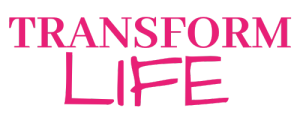Occupational therapy (OT) significantly benefits individuals with Attention Deficit Hyperactivity Disorder (ADHD) by addressing their unique challenges and promoting self-regulation. ADHD, a neurodevelopmental disorder affecting attention, impulse control, and hyperactivity, requires tailored interventions to enhance functional skills and overall well-being.

OT Assessments:
Occupational therapists conduct thorough assessments, including sensory processing, motor skills, executive functions, and self-regulation evaluations. These assessments provide insights into individual strengths, challenges, and specific needs.
OT Interventions:
Sensory Integration:
- Proprioceptive Activities: Engage in activities providing deep pressure and proprioceptive input to aid self-regulation.
- Calming Sensory Strategies: Implement sensory tools and techniques, like deep breathing and fidget tools, to enhance focus.
Fine and Gross Motor Skills:
- Handwriting Improvement: Facilitate activities improving hand-eye coordination and fine motor control for enhanced handwriting skills.
- Coordination and Balance Exercises: Include activities promoting coordination and balance, crucial for overall motor development.
Executive Function Training
- Time Management Strategies: Teach techniques using timers and visual cues to enhance time awareness.
- Organizational Skills Training: Implement strategies such as checklists and color-coding for improved organization.
Environmental Modifications:
- Structured Workspaces: Create organized workspaces to minimize distractions and improve focus.
- Visual Supports: Use visual schedules and charts to provide clear instructions and set expectations.
Social Skills Development:
- Social Skills Groups: Conduct groups for practicing and enhancing social interaction skills.
- Role-Playing: Use role-playing activities to simulate social situations, fostering effective communication.
Cognitive-Behavioural Strategies:
- Mindfulness Techniques: Introduce practices promoting stress management, attention improvement, and self-awareness.
- Cognitive Strategies: Teach cognitive techniques to address negative thought patterns and enhance self-control.
Educational Support:
- Collaboration with Teachers: Work closely with educators to implement academic support strategies.
- Study Skills Training: Provide guidance on effective study skills, time management, and organizational techniques.
Parent and Caregiver Education:
- Parent Training: Educate parents about ADHD and strategies for supporting their child at home.
- Home-Based Interventions: Offer suggestions for creating a structured and supportive home environment.
Benefits of OT for ADHD:
Improved Self-Regulation:
Develop strategies for better impulse control and emotion regulation.
Enhanced Focus and Attention:
Target sensory processing and executive functions to improve focus and attention.
Development of Coping Skills:
Equip individuals with coping mechanisms to navigate challenges and enhance resilience.
Increased Independence:
Address motor skills, organizational abilities, and self-regulation for greater independence.
Improved Social Interaction:
Foster social skills development, helping individuals navigate social situations effectively.
Enhanced Academic Performance:
Collaborate with educators for academic success by implementing support strategies.
Positive Impact on Daily Functioning:
Contribute to improved daily functioning and overall quality of life.
Challenges and Considerations:
Individual Variability:
Tailor interventions to the unique strengths and challenges of each individual.
Consistency is Key:
Implement strategies consistently across different environments for optimal outcomes.
Collaboration with Other Professionals:
Collaborate with various professionals for a comprehensive approach to ADHD management.
Ongoing Assessment and Adjustment:
Regularly assess progress and adjust interventions to meet evolving needs.
Conclusion
Occupational therapy, through a holistic and individualized approach, empowers individuals with ADHD to build essential skills and improve overall well-being. By addressing sensory, motor, and cognitive aspects, occupational therapists contribute to a comprehensive and integrated support system, fostering success in various aspects of individuals’ lives.

Transform Life is a NDIS registered organisation that provide support for your autistic child, as well as support to you as a parent to best navigate the challenges your child and family face on a daily basis.
Book your consult with an experienced Occupational Therapist at Transform Life to explore how OT can support your autistic child and your family.







